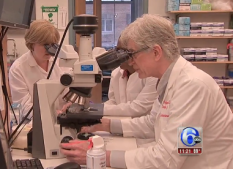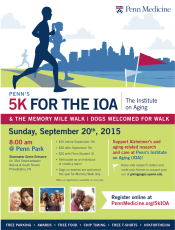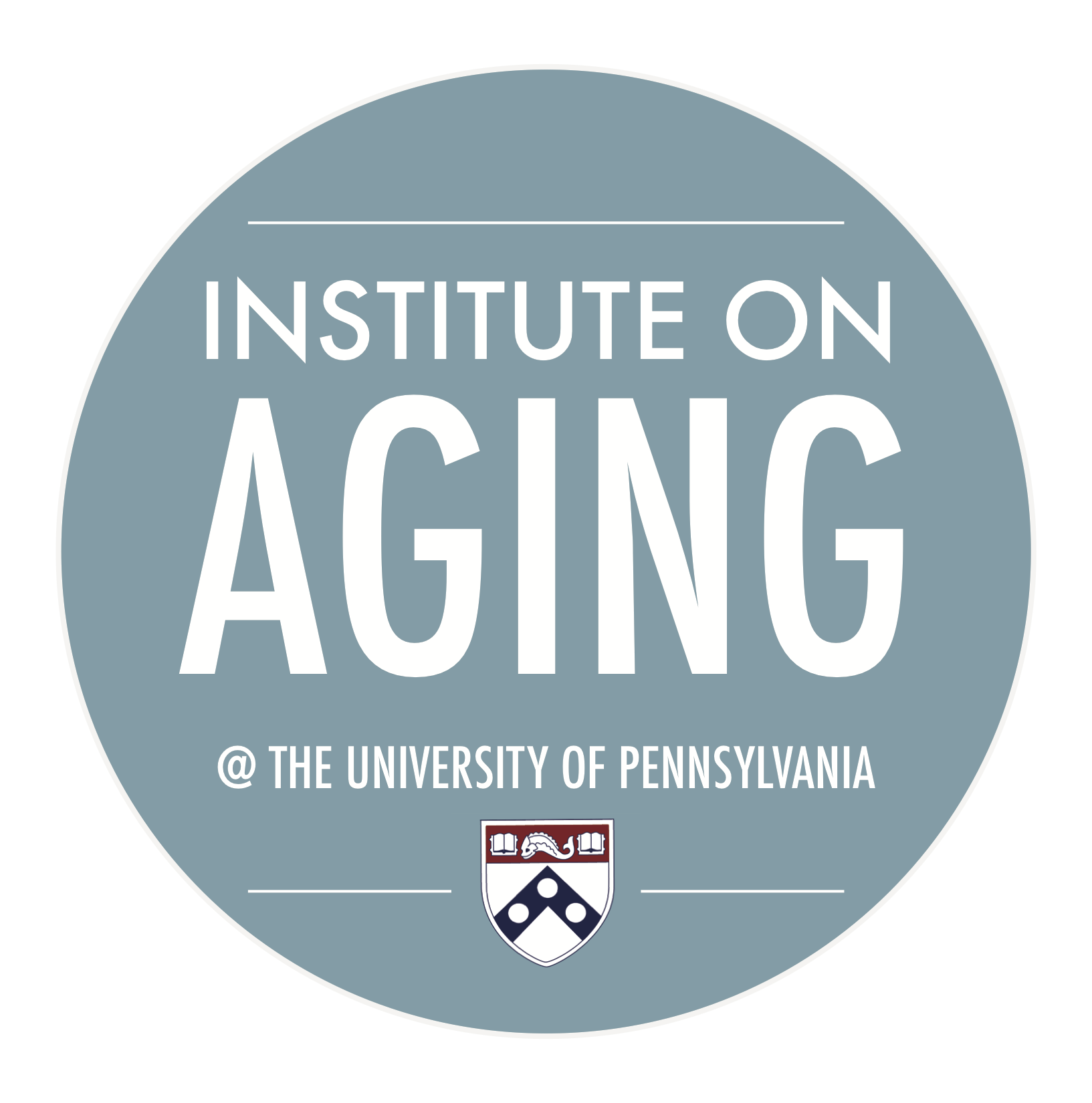This week, we seem to be experiencing a wave of Alzheimer’s related news ranging from research breakthroughs, risks and detection to potential treatment options. We’ve compiled a list of this week’s most popular hot topics circulating the internet to catch you up to speed. Here’s the recap…
‘Penn Scientists Make Breakthrough in Alzheimer’s Disease Research’
 IOA Director, John Q. Trojanowski, MD, PhD, and research partner Virginia M.-Y. Lee, PhD, MBA, Director of Penn’s Center of Neurodegenerative Disease Research, were featured in 6ABC’s “Philly Leading the Way” series to discuss their research in fighting Alzheimer’s disease. Based on their findings, Alzheimer’s is directly related to a protein in the brain called Tau, which “misfolds” and triggers abnormal tangles to spread from cell to cell, ultimately causing the disease.
IOA Director, John Q. Trojanowski, MD, PhD, and research partner Virginia M.-Y. Lee, PhD, MBA, Director of Penn’s Center of Neurodegenerative Disease Research, were featured in 6ABC’s “Philly Leading the Way” series to discuss their research in fighting Alzheimer’s disease. Based on their findings, Alzheimer’s is directly related to a protein in the brain called Tau, which “misfolds” and triggers abnormal tangles to spread from cell to cell, ultimately causing the disease.
This groundbreaking discovery opens the door to the much needed and highly anticipated potential for treatment. If science can find a way to stop the cell-to-cell spread, they can ultimately halt the development of Alzheimer’s before the disease progresses too far.
To view the full 6ABC segment, click here.
‘New Drug May Attack Alzheimer’s Underlying Cause, Study Finds’
A CBS News story this week highlights the experimental drug, solanezumab, and its potential to attack the underlying causes of Alzheimer’s disease progression. While the results of the study have not been incredibly dramatic, over a course of two years it has shown a decline in how mildly impaired patients lost memory function. The drug, administered every 4 weeks through IV, poses virtually no serious side effects and has proved to reduce amyloid plaques in the brains of mouse models, sparking hope for future patient trials down the line.
To view the full “CBS This Morning” segment, click here.
‘Could a Saliva test help spot Alzheimer’s?’
In another CBS News feature this week, “scientists say a test based on a patient’s saliva might someday help detect Alzheimer’s disease.” In a recent study, scientists from the University of Alberta in Canada tested the saliva of 22 people with AD, 25 people with mild cognitive impairment (MCI), and 35 cognitively normal individuals. Their findings showed that the saliva of those diagnosed with AD had different levels of certain substances compared to the healthy controls and those with MCI. While the results show hope for a potential breakthrough in the field of Alzheimer’s, much more research is needed to validate any certainty in the correlation.
To view the full CBS News story, click here.
‘Sleep Could Help Stave Off Alzheimer’s and Memory Loss, According to New Study’
According to a new study highlighted this week on HuffPost Healthy Living, poor sleep patterns in older adults may be linked to the development of Alzheimer’s disease. Researchers found “that poor sleep not only hinders the brain’s ability to save new memories, but also creates a channel through which this Alzheimer’s-triggering protein (beta-amyloid) is able to travel and attack long-term memory storage.” While this study, currently being conducted at the University of California, Berkeley, is not the first to look at the connection between sleep and Alzheimer’s, it is one of the first of its kind to use human subjects.
To read the full feature of this study, which was published in Nature Neuroscience earlier this week, via HuffPost Healthy Living, click here.
‘Too much TV could raise the risk of Alzheimer’s, study suggests’
Just as too little sleep may increase the risk of Alzheimer’s, too much of something else may increase the chance as well. A new study featured by the Washington Post “found that people who watched a lot of television — namely, four hours or more per day — scored significantly lower on measures of cognitive performance in middle age,” according to its investigators at the Northern California Institute for Research and Education in San Francisco. It also showed similar results for those who reported low levels of physical activity. These findings “suggest that sedentary habits set early in life can perhaps have an impact on one’s dementia risk in midlife and later.”
To view the full Washington Post feature, click here.
This Week’s Wave
Many of the stories emerging this week are a result of the annual Alzheimer’s Association Conference currently being held in Washington, DC. During this time, Alzheimer’s disease researchers from around the globe join together to discuss their findings and future research, all working towards the mutual goal of combatting this debilitating disease.
Penn’s 5K for the IOA and the Memory Mile Walk
 Just like these scientists and researchers, there are people around the world who are doing all that they can to help in this fight against Alzheimer’s disease, but without financial support, there is only so much that can be done.
Just like these scientists and researchers, there are people around the world who are doing all that they can to help in this fight against Alzheimer’s disease, but without financial support, there is only so much that can be done.
Here at Penn Medicine, we are hosting our Fourth Annual 5K for the IOA and Memory Mile Walk to help raise funds to support Alzheimer’s and aging-related research and care taking place at Penn.
For more information, or to register online, visit: www.pennmedicine.org/5kioa
